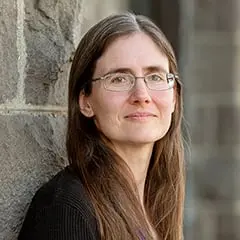 | 1 LU |
 | 1 LU |
Date / Time: October 31, 2025 | 2:15 – 3:15 pm
Room: 164-165
Audience: Architects
Call to Action: Leave with actionable insights on how to decode energy reports, leverage regional opportunities for carbon reductions, and design schools that deliver measurable benefits to both communities and the planet.
Abstract: As the push for carbon and energy regulations intensifies, schools stand at the crossroads of climate action and design innovation. Navigating the differences in regional climates, local codes, and certification pathways can feel like comparing apples to oranges—or, in this case, kilowatt-hours to carbon offsets. This session dives into the sustainability metrics shaping Elementary and Middle School design in California and British Columbia. We’ll unpack how Energy Use Intensity (EUI) benchmarks, percent-improvement targets, and carbon regulations differ—and where they converge—across these two regions. With a lens on both operational and embodied carbon, we’ll clarify what makes a design genuinely sustainable, and what metrics might mislead. Attendees will leave with actionable insights on how to decode energy reports, leverage regional opportunities for carbon reductions, and design schools that deliver measurable benefits to both communities and the planet.
Learning Objectives:
Design of Educational Facilities
Aligning Educational, & Community vision with design to support a regenerative mindset for a sustainable and future ready Educational Facility.

Aaron is CEO / President and one of six principals of Quattrocchi Kwok Architects in Northern California. With 25 years of experience, his work, passion and advocacy has garnered his reputation as a leader on how educational design impacts academic success. Aaron is certified as an Accredited Learning Environment Planner and is a member of the faculty of the A4LE Advanced Academy. He also advocates for school facilities with the School Energy Coalition and CHPS.

Alexa, Sustainability Lead and Project Architect at Quattrocchi Kwok Architects, leverages her 17 years of experience to champion eco-friendly practices and innovative designs. Since joining QKA in 2018, she has focused on reducing project carbon impact, maintaining LEED, CHPS, and CalGreen standards, and providing sustainability reviews. Alexa also tracks AIA2030 performance and enhances internal processes as the Process & Organization Lead, ensuring efficient resource organization and communication.

Steven is the Sustainability Lead and Associate at Thinkspace Architecture Planning Interior Design in British Columbia, Canada where he is a strong advocate for carbon and energy reduction in education design. He is responsible for tracking the AIA 2030 performance goals across three offices and is developing a series of workshops to advance the knowledge around embodied carbon in buildings. He is active member of the A4LE and a passionate education designer.